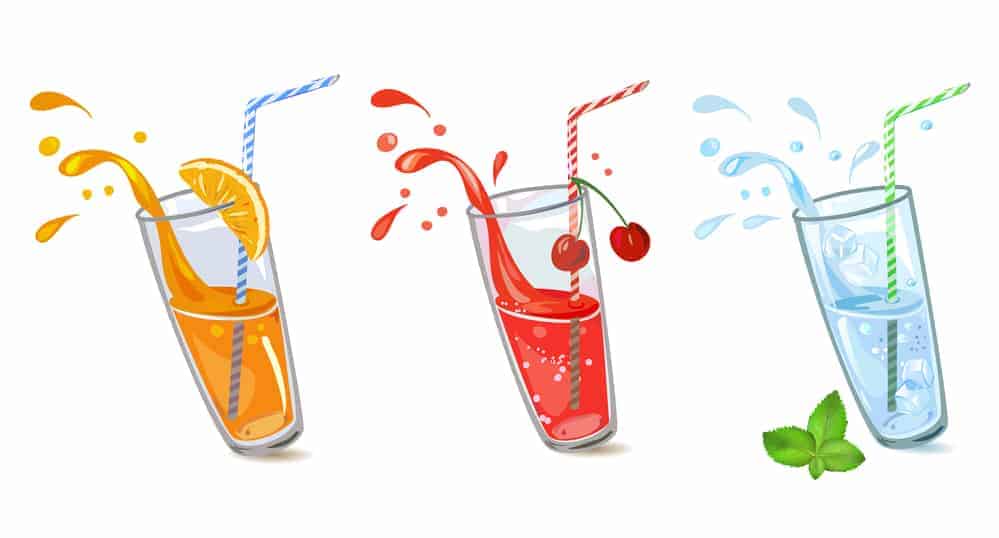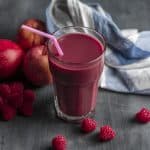
It seems that many people wonder “When juicing should I add water to juice?” There are a few reasons why adding water to your juice is important to help you get the best results. Do you think that adding water to your juice will dilute its nutrients? Think again! The simple fact is that you can add as much water to your juice as you want, and you’ll still get all the nutrients. You see, the water doesn’t dilute the juice—it adds volume. So, if you’re juicing for a party and want to make a larger volume of juice, adding water will give you more juice.
Will Adding Water Dilute The Nutritional Value?
Adding water to your juice will dilute the nutrients contained within it. This means you’ll need to drink more juice to get the same nutritional benefits.
Save 50.0% on select products from CAISIMIKI with promo code 50BL2IMT, through 4/9 while supplies last.Juicing is a great way to get a lot of nutrients in a single glass. But it’s also a good way to make sure you’re getting too much of some nutrients. It’s true that adding water to a juice will dilute the nutritional value. But if you’re drinking fresh juice regularly, that value might not mean all that much. After all, the U.S. Department of Agriculture’s recommended daily allowance of vitamins and minerals is based on a 2,000-calorie diet. It doesn’t take into account the fact that the average American consumes nearly twice that many calories a day. You have more juice to drink which you can store and drink later and still get the nutrients over time.
Adding water can dilute the concentration of the juice. This helps to preserve more of the natural nutrients than when juicing without water. Finally, adding water to green vegetable juice is important to prevent your juice from becoming too thick or sticky. If you like to keep your juice as pure as possible do not dilute it with any water. This means that you don’t add any water to your juices, even if they’re a little too strong for your taste. For example, juice is strong so adding water will help dilute it.
Benefits Of Adding Water To Juice
Most people know the benefits of juicing, but few know about the benefits of adding water to juice. While there are many reasons to add water to juice, one of the most useful is that it can make the juice easier to drink. By mixing the juice with a little water, it is less concentrated. This means that you can drink more of it without it being too strong. Water can also help to balance your body’s pH levels. When juiced for a long period of time, like a day or more, you may notice that your green juice doesn’t taste its best. Sometimes, juicing can cause your green juice to become cloudy, with a texture that resembles cottage cheese. This is because the juice isn’t fully pure when juiced. There are pollutants and microorganisms in your juice. And they can leave a film on the glass, giving you cloudy green juice. Adding water immediately after you finish juicing helps to dilute the pollutants in your juice. This makes it clearer and generally fresher tasting.



When To Add Water To Your Juice?
You should only add water when you are about to turn the processor. Any hard ingredients such as crushed ice or pieces of fruit will have enough time to dissolve before adding the water. If you have already strained most of the juice, but still find it very bitter or tasting unsatisfactory, then you may want to add water to make it less tart.
People know that juice is good for them. But you want to make sure you’re adding enough water so that the juice will taste right. It shouldn’t matter how much or what kind of fruit you’re juicing though. The reason is that your body will usually adjust itself to whatever type of juice you’re adding so you shouldn’t worry too much about it.
Juicing and adding water to your juice is actually a pretty easy thing to do. All you need to do is take a glass and mix it into your juice. I’ve even seen people add some water and ice to juice when they’re outside and want a cool drink during the summer. You’ll always want to add some water when juicing but it’s not necessary to add too much.One of the biggest myths when juicing is that adding water will help to get rid of the bad taste in your mouth. It can and will, but, but not because you’ve added water. Water just gives your juice that little bit of extra taste that many people like to add to their juices.
Add High Water Content Fruit And Veg
Or, instead of just adding water, why not add some watery fruits and vegetables. Like watermelon, kiwis, or cucumber – so that you get water plus some nutritious vitamins and minerals. Cucumber for example has high water content. Cucumber also has potassium and vitamins C and K. Celery is another vegetable with high water content and will give you a nice diluted celery juice.
If you really want to add some water to your fruit juice, do it with cucumber so you get some extra vitamins too. Adding water and diluting juice may help lower how much sugar your body absorbs so quickly. Because it means you will drink the juice a lot slower because you have more of it to drink.
Of course, you are still wondering – when juicing should I add water? The answer is, it depends. If the produce has very little pulp, or you’re using a powerful centrifugal processor, then you probably shouldn’t be doing it. Otherwise, if you’re extracting a fairly large amount of juice, or are using a press, then it’s absolutely appropriate to add water to the juice. And if you’re a home juicer, then you can use tap or filtered water, if you want a really smooth finish to your juice.




